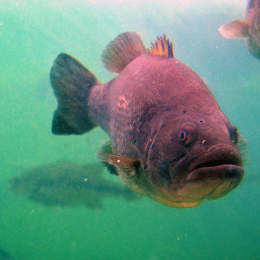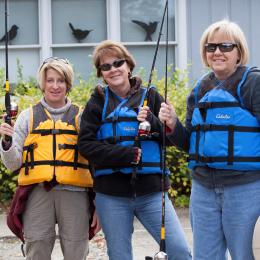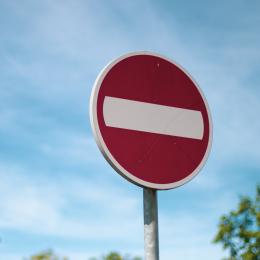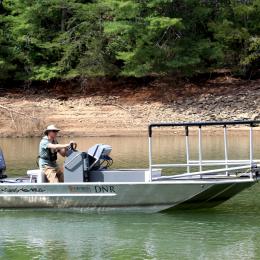Quick boating safety quiz: Do you think it is okay to jump the wake of another boat when you are less than 100 feet away or use your personal watercraft to splash someone sitting on a dock? Guess what, it's not and in fact, both activities are illegal. If you thought otherwise, you should definitely make an effort to learn the boating "rules of the road." Incidents can occur quickly, and the chance of one happening increase greatly if one or either boat operator is unfamiliar with or does not follow existing boating laws, or the "rules of the road," that govern lakes and rivers.
"Anyone born on or after January 1, 1998 is required by Georgia law to take a DNR-approved boater education course prior to operating a vessel on state waters," said Lt. Colonel Johnny Johnson, Assistant Director of DNR's Law Enforcement Division. "If you were born before that date, you are not required by law to take the course, but we recommend that you do, " he said. "It never hurts to get a reminder to boat safely and to brush up on boating laws, since occasionally they do change. Your efforts to stay up to date could potentially save your life or the life of someone you know."
One of the most important "rules of the road" is the 100 foot law which includes all boats, not just personal watercraft (such as Jet Skis or Sea Doos), and requires boat operators to slow to idle speed when they are within 100 feet of docks, piers, bridges, shorelines or people in the water. The 100-foot law states, "No person shall operate any vessel or tow a person or persons on water skis, an aquaplane, a surfboard, or any similar device on the waters of this state at a speed greater than idle speed within 100 feet of any vessel which is moored, anchored, or adrift outside normal traffic channels, or any wharf, dock, pier, piling, bridge structure or abutment, person in the water, or shoreline adjacent to a full-time or part-time residence, public park, public beach, public swimming area, marina, restaurant, or other public use area."
This means that it is illegal to jump the wake of another boat within 100 feet and to "buzz" other boats, vessels cannot operate around or within 100 feet of another vessel faster than idle speed unless it is overtaking or meeting the other vessel in compliance with the rules of the road for boat operation and makes it illegal for boat operators to follow closely behind another vessel, jump the wake of another vessel, or change or reverse their course of direction in order to ride or jump in the wake of another vessel.
"People who operate boats and personal watercraft at dangerously high speeds, and zip into and out of coves and along shorelines where other vessels are anchored or where people are in the water are not only putting themselves and others at risk for serious accidents, but they also are breaking the law," says Lt. Col. Johnson.
Other "rules of the road" for boat operation include:
- When meeting another vessel, boat operators should pass on the right side (just like in a car) unless the boats are far enough apart that they are not meeting head on or close to head on.
- On narrow rivers and streams, stay as far right as possible and be careful when rounding bends and curves and overtaking or passing other boats.
- In a crossing situation, the boat on the right should hold its course and the boat on the left should slow down and cross behind the other boat.
- Powerboats always should yield to sailboats.


















